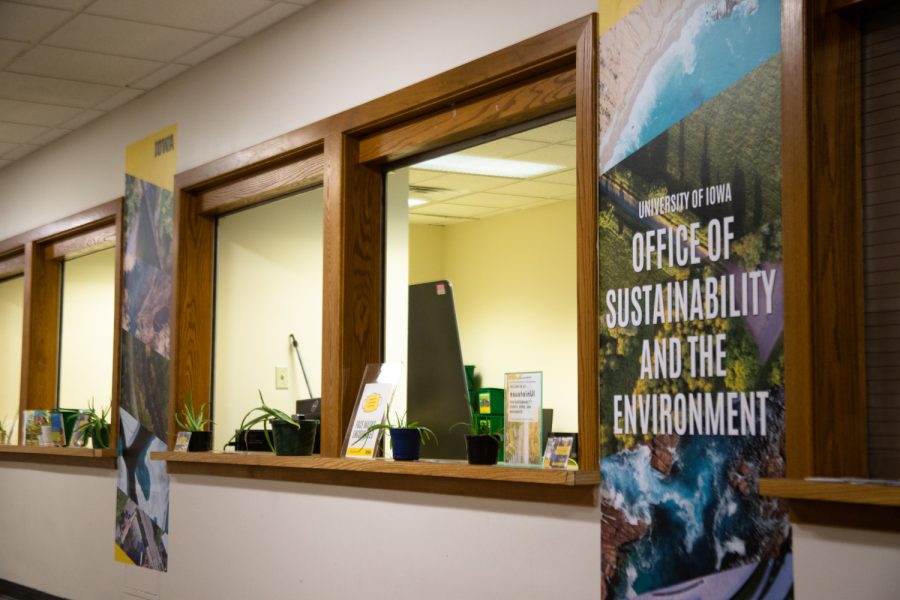Generation Z increases climate change awareness
Generation Z prioritizes climate change as the most important issue facing the world, but without improved foreign relations and help from past generations, the consequences could be apocalyptic.
The University of Iowa Office of Sustainability is seen at Jesup Hall at the University of Iowa on Thursday, Sept. 7, 2021.
October 7, 2021
Climate change is rated as one of the most pressing issues for Generation Z.
Chosen by 38 percent of young Americans, the rising younger generations picked the global crisis as the top issue faced by modern voters today compared to the 26 percent of Generation X, according to a 2019 report from the Center of American Progress.
Generation Z grew up around the conflict of a climate crisis and gradually became more aware that action is necessary, also according to Center of American Progress’s 2019 data.
Amna Haider, UI student and president of the Peace-by-Peace student group, said combating the climate crisis is now an everyone problem that affects more than a single nation.
“So seeing this proliferation of terrorist groups, or in climate change, the lack of regulation, the deregulation of environmental protection in the United States and around the world, we’re now seeing the consequences of those too,” Haider said.
Haider added that no one wins because of climate change.
“I’m hoping as a generation, we are able to have that energy and motivation to work collaboratively with other countries instead of acting divisively,” she said.
Stratis Giannakouros, director of the University of Iowa Office of Sustainability and the Environment, said climate change is “an intergenerational problem.”
He said the legacy of carbon emissions that have accumulated in the atmosphere can go back to the industrial revolution.
“If this is just Gen Z’s responsibility to address this problem, I think we’re lost because I don’t think Gen Z, as much as they care about this, are in the positions of power yet,” he said.
Haider said that by seeing the consequences of climate change more compared to the traditional great power competition of the past, Generation Z has shifted into thinking about foreign policy in a different way.
“Rather, we’ve seen instances of human rights violations in mass trustees through, real-life and through media,” she said.
Brian Lai, UI political science department chair and associate professor, said there is a potential to ignore other issues because of this focus on climate change.
“Gen Z cares a lot about climate change, they care a lot about human rights, but they are also sort of less willing to use more forceful approaches to dealing with human rights issues,” he said.
Giannakouros said he attributes this increasing awareness to the education given to Generation Z.
“There’s been an increasing awareness, amongst younger people in particular, who I think have had more exposure in their education to the science of climate change and the realities of what that science means, for drought or flooding or extreme heat and class of ecosystems, et cetera, that’s going to impact human wellbeing,” he said.
Giannakouros said climate change is a monumental challenge that spans borders.
“Usually one of the hallmark features of a grand change is that it requires a bunch of thought across disciplines, but also across countries,” he said.




